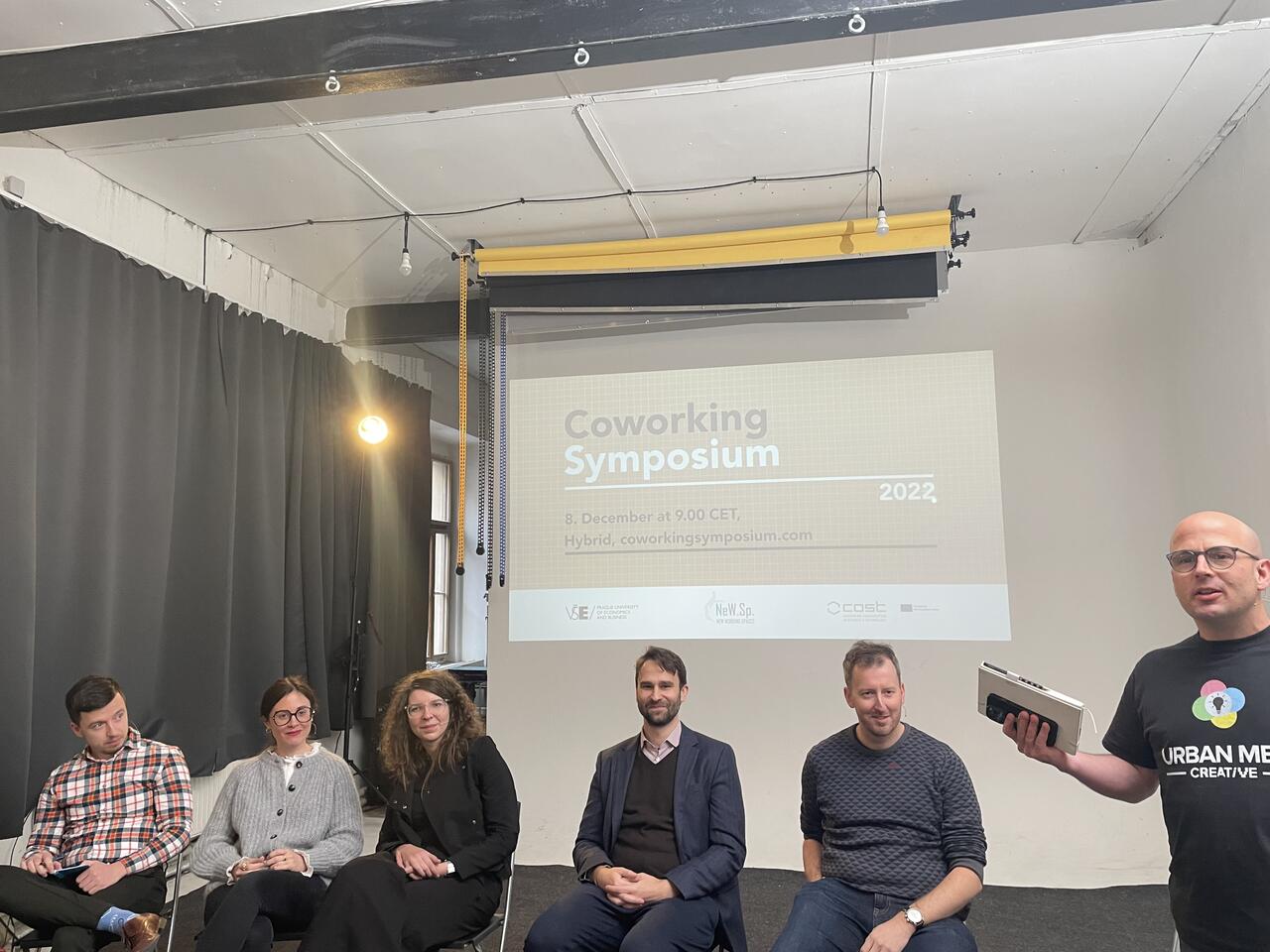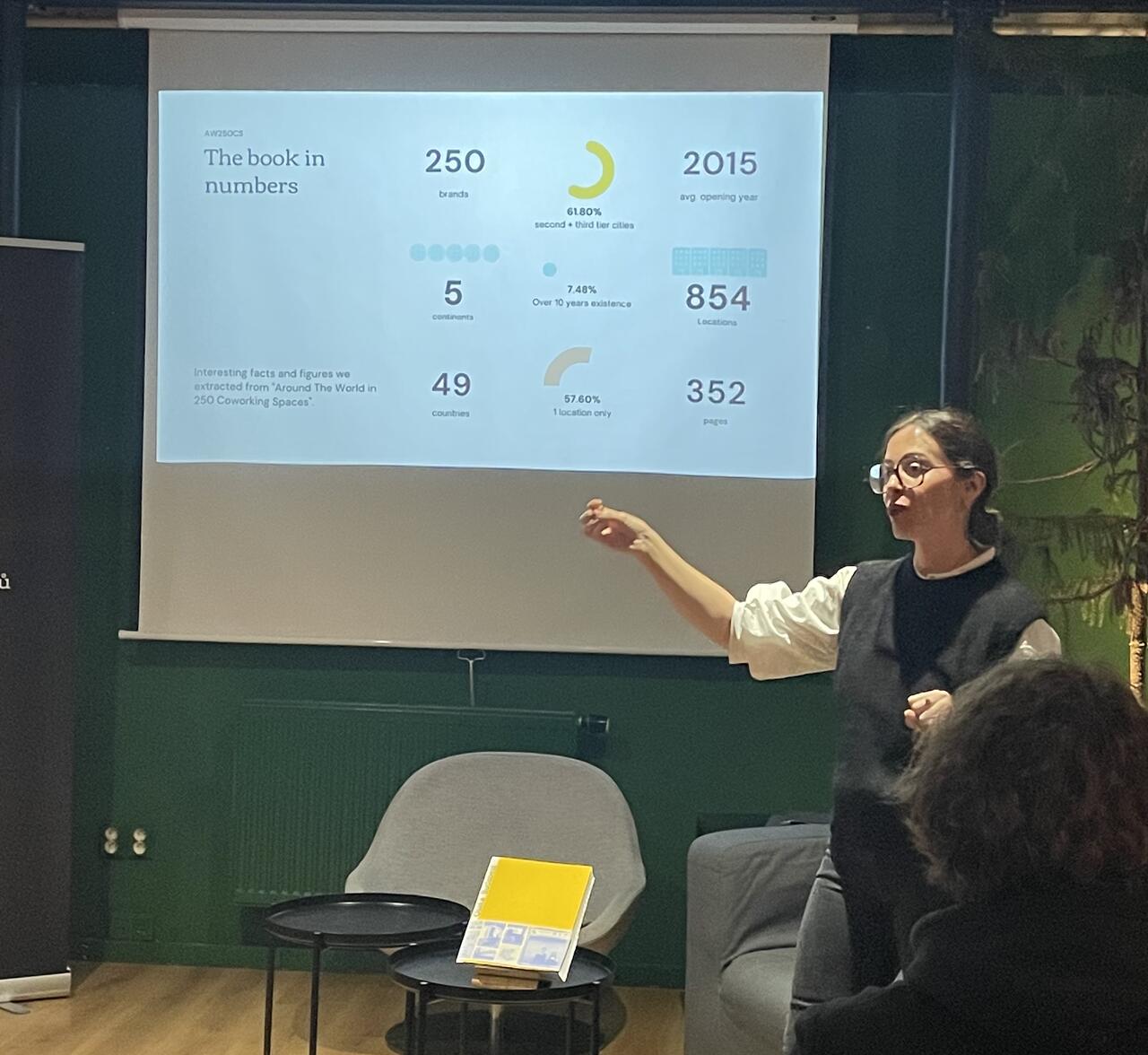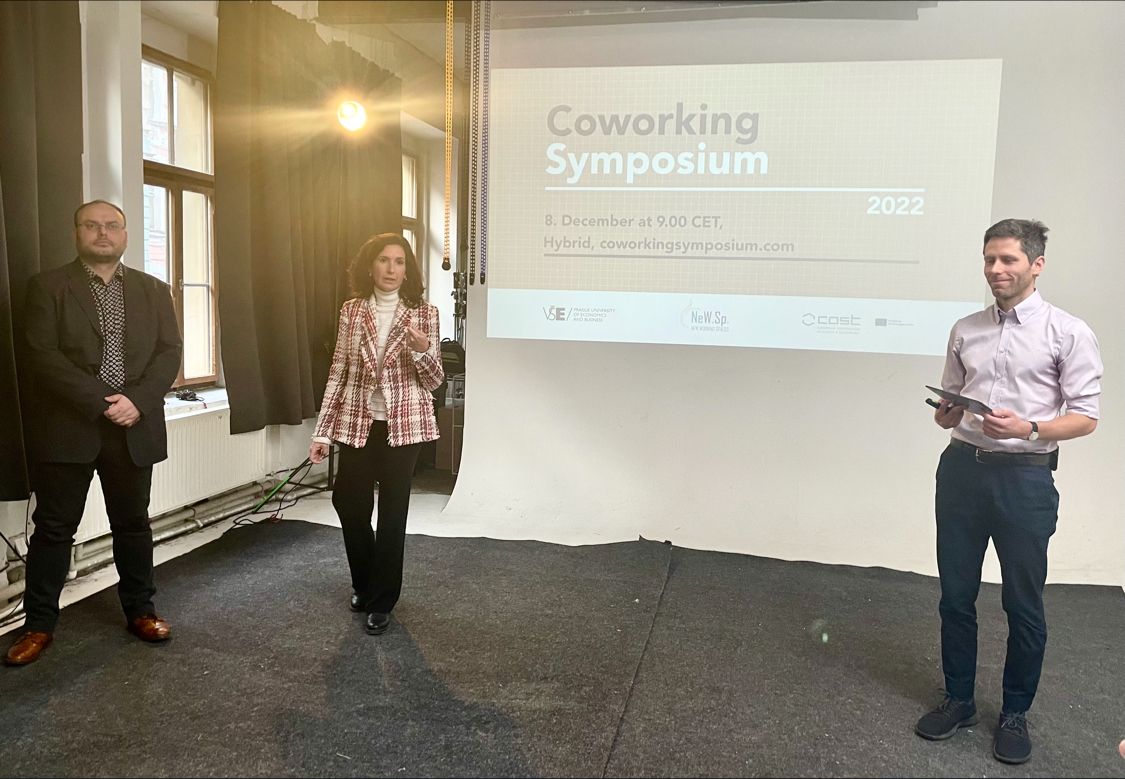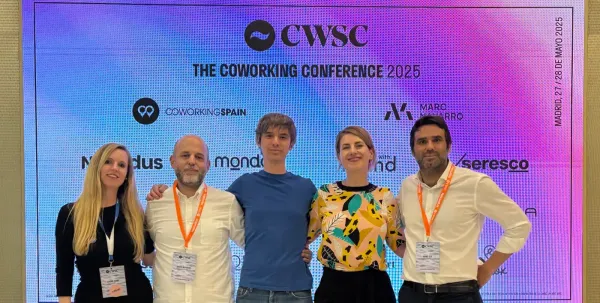Last week, all eyes were on Prague as the leading coworking researchers convened at the Coworking Symposium. The symposium was a live, free-to-attend day-long conference (and special workshops for researchers) that put the spotlight on the volume and quality of the research on coworking spaces.
Couldn’t make it there and missed the live feed? We’ve got you covered. Our CEO Thilo Utke was in the audience and shared his takeaways from each talk during the day.
Key takeaways
Dr. Louise Suckley delivered a talk on the transition from traditional offices to home-based workspaces during the pandemic. Her series of interviews focused on how workers are adapting psychologically, physically and socially. Her findings showed that some effects have been harder to adapt to than others, and she recommends the following to make new coworkers feel welcome:
- Market coworking spaces as a temporal structure for the day. Coworking spaces are where anyone can come to get work done and maintain a healthy separation between work and family.
- Your interiors should provide comfort and a wide array of noise options, from social kitchens to quiet seating for focus work.
- Build your community through shared experiences, which has been missing for a lot of newly-isolated workers.
Athens has positioned itself as one of the top destinations for digital nomads. Vasilis Avdikos elaborated on how this impacted not only the economics of coworking but also urban economics. A key example he gave is how the local economic incentives are shaped through different consumption patterns. It’s increased connectivity and local economic growth but also increased prices, making coworking less affordable for freelancers. It’s a pattern that will likely repeat itself in other cities over the coming years.
The pandemic continues to shape the way we live our lives. But what did this mean for new working spaces and what does it mean for our future? Ilaria Mariotti, Pavel Bednar, and Mina Di Marino have been focusing on just this topic and outlined their finding in The COVID-19 Pandemic and the Future of Working Spaces. Want to see for yourself? You’re in luck, you can download the book now.
Community is everything when it comes to coworking. But what do we mean when we say “community?” Dr. Alexandra Bernhardt set out to answer that question in The Meaning of Community and the Role of Atmospheres in the Context of Coworking Spaces. She found that there are different ways that coworkers conceptualize community. Some gravitate toward self-organized spaces, some to curated communities, and others to spaces that function as service providers. Depending on the community you are working with, it will affect the way you structure your community manager, space rules, and community guidelines.
Thomas Vogl did a literature analysis on existing research on one of the topics that we find near and dear to our hearts: the effects of coworking spaces on society and the economy in the periphery. Based on his research, he found that coworking spaces:
- Drive innovation and access to investment
- Reduce traffic and CO2 emissions
- Revitalize local economies
- Raise rents while reducing operating costs
Overall, he found there was a correlation between quality of life and access to coworking spaces.
Rural coworking continues to be the talk of the town. In The Current and Future Perspectives on Rural and Urban Coworking, Pauline Roussel, Lukas Danko, Vendula Doubravská, Thomas Vogl and Pavel Železný discussed what they’ve been learning about rural coworking and how it has been taking hold since the pandemic. These new rural coworking spaces have been revitalizing areas that many people thought were in permanent decline.

This was also seen in the results of another talk by Gary Bosworth. He was investigating the development and trends behind rural coworking development. Among his findings were that rural coworking is a huge boon to local communities, but that the sector is fragmented due to the nature of the sites. To that end, he shared a toolkit for rural coworking spaces which you can find here. If coworking spaces are going to play an important role in rural development (and the data says that they are), then it’s going to be helpful for these coworking spaces to learn from one another and build their own networks.
Tel Aviv is a city bursting with startups, tourists, and coworkers! In The Lifestyles of Millennial Coworkers in Urban Spaces, Amnon Frenkel identified 4 different types of members based on a factor analysis:
- Well-established freelancers
- High-tech entrepreneurs
- Salaried employees
- Young educated employees
Dr. Simon Hensellek shared what the promise of coworking means for universities. His presentation focused on the many benefits of coworking in university life, showing the clear need for increased access on university campuses. Now his goal is to build a booking platform that could be shared by different universities.
The latest word on Ukrainian coworking is a continuation of what we’re been hearing at Coworking Nativo and Coworking Europe. Victoria Zhurbas-Lytvyn and Marko Orel shared updates on the initiatives that coworking spaces have been leading as the Russian invasion of Ukraine continues. Their work includes offering shelter, amenities, and safe workspaces for people living and working in the country. They provided data to demonstrate the ways in which coworking spaces have stepped up to fill in the gaps left by mass migration, internal refugees and displacement, utility shortages, and a constant blanket of uncertainty.
The final event of the day was the presentation of the book “Around the World in 250 Coworking Spaces” by Pauline Roussel. If you’re a regular reader of our blog (or a newsletter subscriber) you’ll remember that she created the book together with Dimitar Inchev while visiting coworking spaces around the world. Since the event was held in Prague, she was able to feature some local spaces from the book such as HubHub, OPERO, event hosts PRACOVNA, and Sněmovní 7.

Thanks to the organizers
Thank you to COST (European Cooperation in Science and Technology), Marko Orel, and everyone who helped make this conference a reality. We feel more confident than ever that the coworking industry is in good hands as we look towards a new landscape in the 2020s and beyond.
If you aren’t already using Cobot as your coworking management software, give it a go! You’ll find that our features can help you run your coworking space more effectively and grow your community. Just sign up for a free trial or a live demo session. And if you have questions, our support team is all ears!
Happy Coworking!



